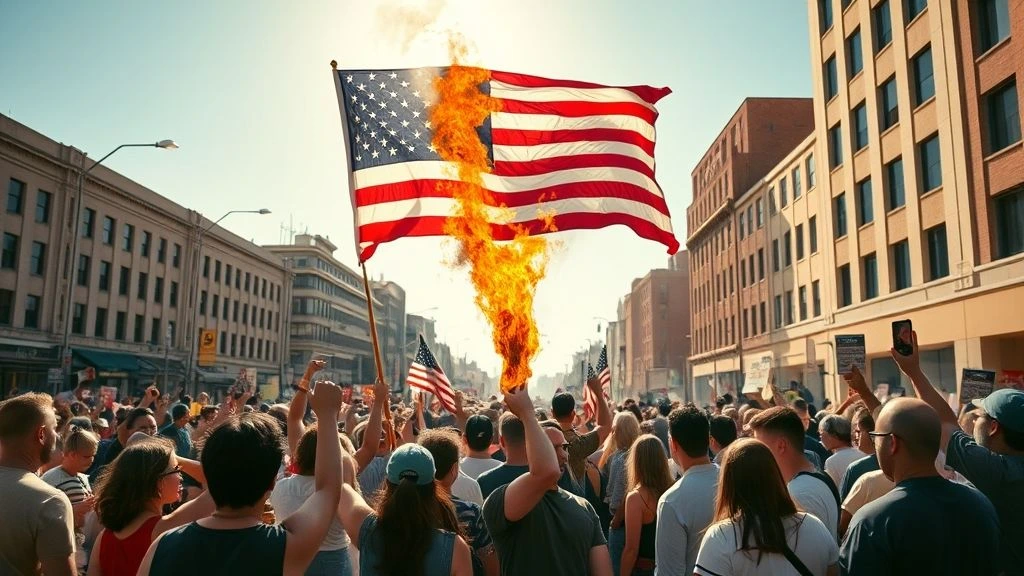President Donald Trump today signed an executive order directing the Justice Department to investigate and pursue criminal charges against individuals who burn or desecrate the American flag, potentially imposing a mandatory prison sentence of one year.
The move directly challenges longstanding Supreme Court precedent that has upheld flag burning as protected political speech under the First Amendment.
During the Oval Office signing, Trump declared, “If you burn a flag, you get one year in jail. No early exits, no nothing… And it goes on your record,” emphasizing a no-leniency approach. The executive order directs Attorney General Pam Bondi to vigorously prosecute violators under existing laws—specifically where flag desecration overlaps with offenses like property destruction or disorderly conduct—but does not create a new federal crime solely for burning the flag.
The order also instructs prosecutors to refer appropriate cases to state or local authorities and empowers immigration officials to revoke visas or initiate deportation proceedings against foreign nationals who desecrate the flag.
READ MORE: Trump Signs Pro-Crypto GENIUS Act
Legal experts and civil-liberties advocates have condemned the directive, calling it likely unconstitutional and deeply concerning. Bob Corn-Revere, chief counsel at the Foundation for Individual Rights and Expression, emphasized that “the government can’t prosecute protected expressive activity—even if many Americans, including the president, find it ‘uniquely offensive and provocative’”.
This executive order sets up a direct confrontation with the Supreme Court’s 1989 ruling in Texas v. Johnson, in which a 5–4 majority held that flag burning constitutes symbolic speech protected by the First Amendment . That decision remains a central precedent, reaffirming that the government cannot prohibit expressive conduct simply because it is offensive .
Supporters of the order frame flag desecration as provocative and potentially inciting violence—although there is no public evidence that such actions pose a significant threat to public order. Critics argue that the executive branch cannot override constitutional protections through a stroke of a pen, and that the order may infringe upon fundamental free-speech rights.
As this unfolds, courts could soon face renewed litigation around the limits of First Amendment protections, especially in a judiciary now markedly more conservative than in 1989.









